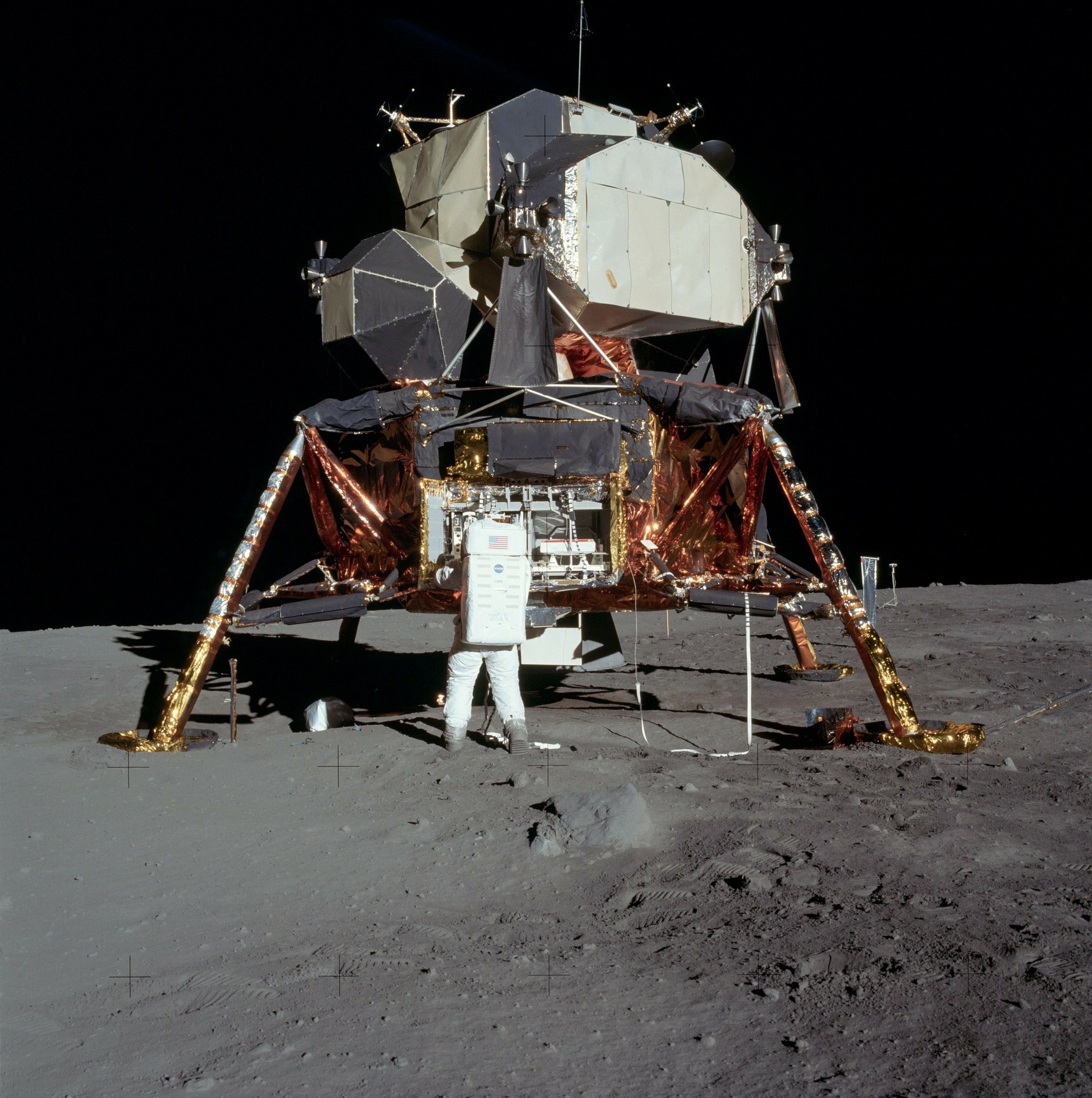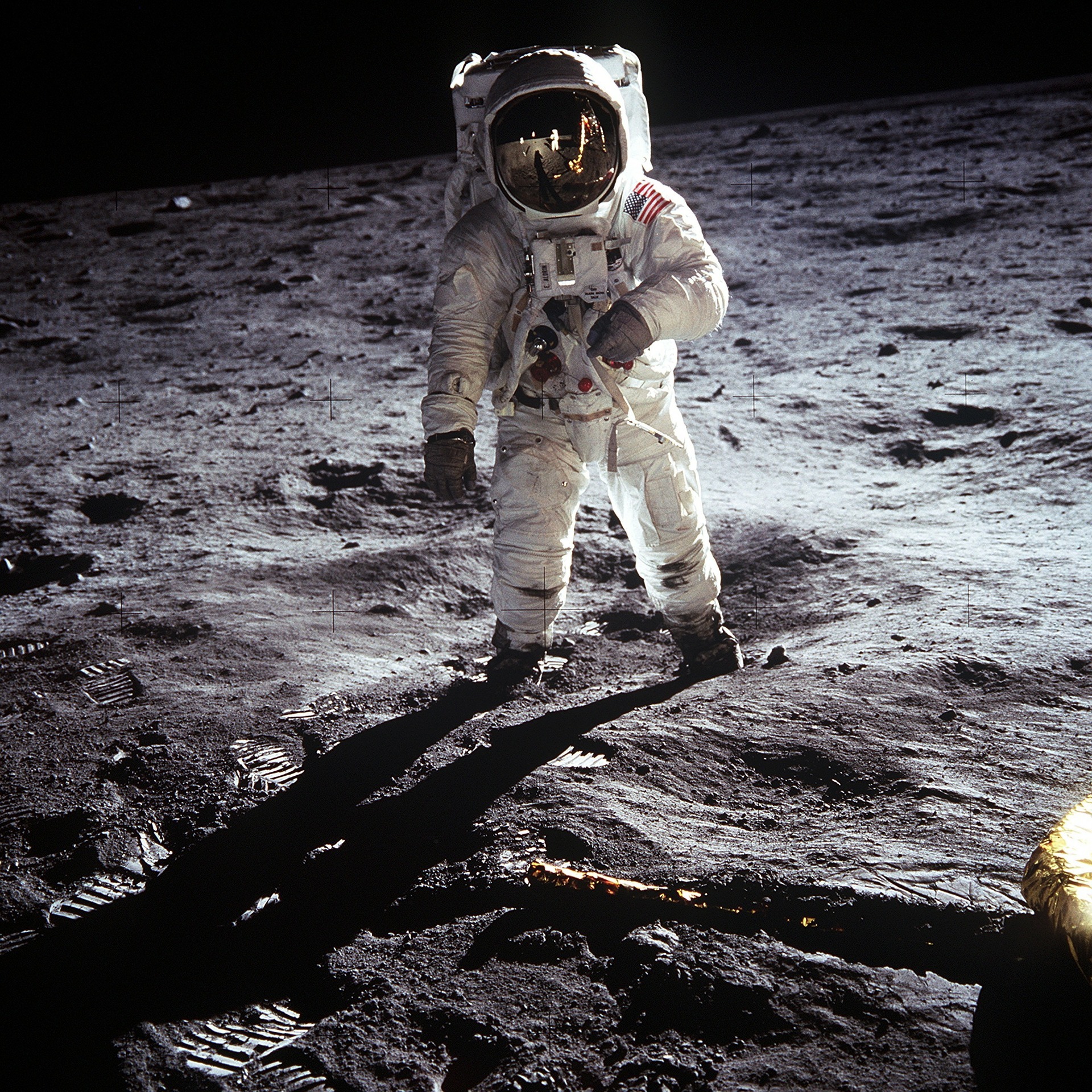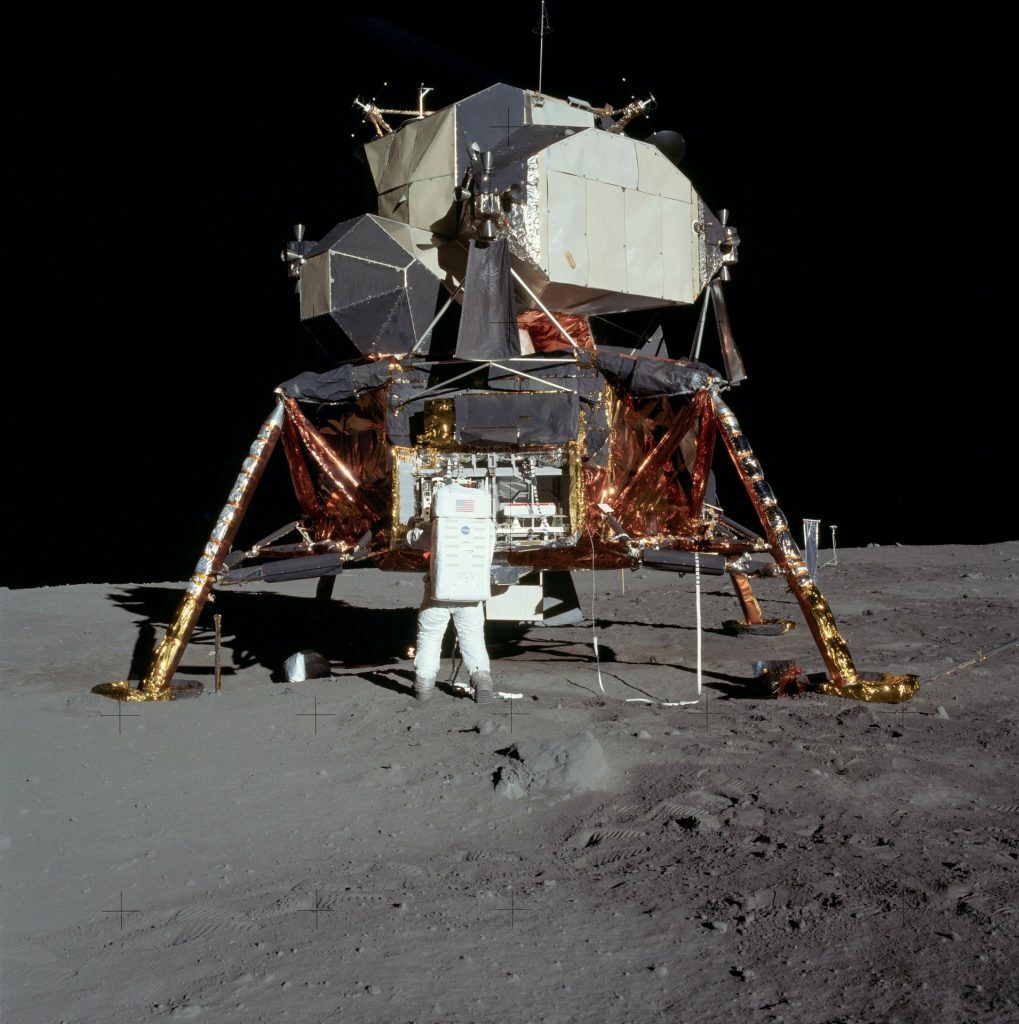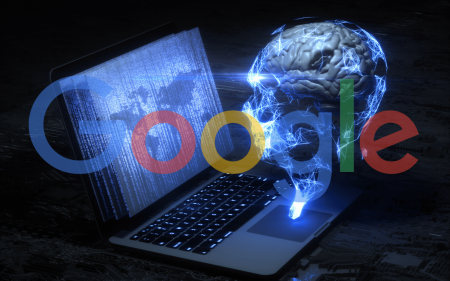Fifty years ago this week humanity landed on the moon. It was a pivotal moment in human history that has shaped our self-consciousness about humanity and our place in the universe.
It was an epoch-defining point in our evolution, when we stepped onto the surface of another planetary body. Humanity has left the building, as it were. But crucially, we returned.
In the politically heated Cold War years of the 1960s, the moment was charged with more than just scientific endeavour. Neil Armstrong and Buzz Aldrin landed the lunar module from Apollo 11 on July 20, 1969, in the culmination of a decade-long space race between the United States and the then Soviet Union.
Armstrong’s verbal mistake in dropping the word “a” from his famous statement – “one small step for [a] man, one giant leap for mankind” – gave the mission a global, if unfortunately, patriarchal – essence.
 This first landing might have begun with political bravado, but it has been a triumph for science. Innumerable breakthroughs in the race to the moon have significantly benefitted humanity. Not just the materials and equipment needed for this unprecedented trip, but the actual computer that was used to land the Lunar Module, famously dubbed Eagle, on the surface.
This first landing might have begun with political bravado, but it has been a triumph for science. Innumerable breakthroughs in the race to the moon have significantly benefitted humanity. Not just the materials and equipment needed for this unprecedented trip, but the actual computer that was used to land the Lunar Module, famously dubbed Eagle, on the surface.
Computing in the 1960s involved monstrous, room-sized machines. The integrated circuit used would become the precursor to today’s microchips and could be contained aboard the ship – amazingly some of the circuits were literally sewn into strips and weaved into the chassis of the Eagle. Software didn’t exist before the space program, nor did the now prevalent job of being a software engineer.
Other famous, and often cited, technology breakthroughs include cordless tools and the spongy rubber soles that would ultimately be used in our takkies. South Africa’s only contribution was most famously Pratley’s Putty, “the glue that went to the moon”, and was used for a range of things.
A lesser-known, but equally important, breakthrough was the ability to administer precise medication doses to astronauts. This has evolved into the insulin pump now used by Type 1 diabetes sufferers.
 But it’s the human story that ultimately resonates. This was a grand adventure into the great unknown. Not Magellan or Vasco da Gama who sailed the uncharted oceans. With television already established, the world was able to watch the triumphant moment Armstrong stepped down onto another planet.
But it’s the human story that ultimately resonates. This was a grand adventure into the great unknown. Not Magellan or Vasco da Gama who sailed the uncharted oceans. With television already established, the world was able to watch the triumphant moment Armstrong stepped down onto another planet.
Earlier Apollo missions had flown around the moon, taking that famous “blue dot” picture of the Earth in space, but it was the landing and returning that truly made humanity a space-faring species.
There has been a flood of nostalgia and articles in the lead up this half-century anniversary, including a thoroughly excellent BBC podcast called “13 minutes to the moon”. It chronicles the last 13 minutes of Apollo 11’s flight to the moon for the landing in the aptly named Sea of Tranquility and is a must-listen.
Like all space geeks I have been transfixed not just by the moon landing itself – and the specular engineering feat that propelled humanity to our closest neighbour – but the impact on our civilisation since. Armstrong and Aldrin only spent 21.5 hours on the lunar surface, but it took tens of thousands of smart people nearly a decade to get there. The impact on humanity is still being felt by that small step.
This column first appeared in Financial Mail




